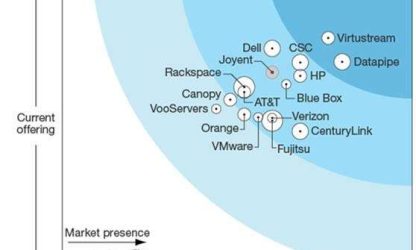 One of the reasons why SaaS (software as a service) is such an excellent platform for companies to use is that it provides scalability. It is very similar to how utilities work. An individual doesn’t need to have a power plant in his or her backyard in order to produce power. Instead, a utility provider builds the power plant and maintains it. The individual gets to use power from the provider and pays for his or her consumption on a monthly basis.
One of the reasons why SaaS (software as a service) is such an excellent platform for companies to use is that it provides scalability. It is very similar to how utilities work. An individual doesn’t need to have a power plant in his or her backyard in order to produce power. Instead, a utility provider builds the power plant and maintains it. The individual gets to use power from the provider and pays for his or her consumption on a monthly basis.
Just like paying for power, the costs of paying for SaaS depends on how many resources the company uses. This gives the company that is subscribing to SaaS solutions and a great deal of flexibility. The company will save money and time by not buying physical software to install and manage, because it will be able to use the software directly from the cloud, which negates the need for installation. On top of that, the SaaS providers will help manage the software. In addition, SaaS allows companies to scale up and down as needed.
The provider of SaaS will host the application in the provider’s data center and provide the company with all the technical support it needs. In order to use the application, the company only needs a computer, tablet, or smartphone as well as an Internet connection. Payment for the application is usage-based. The SaaS provider has two options when it comes to cloud computing. It can use either PaaS (platform as a service) or IaaS (infrastructure as a service) from a cloud provider in order to run its data center.
The flexibility and scalability of SaaS mean that this service will continue to grow in use. Experts believe that the market share of SaaS could increase as much as 30 percent by 2023. There’s also the thought that there will be a higher demand for speed and less of a need for critical workloads when it comes to the application of SaaS solutions.
Some of the other advantages provided by SaaS solutions include these:
- Improved revenue streams and liquidity over the long term. This is because the SaaS model is based on a monthly fee model, meaning that long-term revenue streams and improved liquidity planning are assured.
- Improved software security. Software providers will have control of the software codes, which means that the risk of piracy is greatly reduced.
- Flexibility. Software providers will have the flexibility to expand IT solutions as well as to acquire new sales revenue.
There is somewhat of an investment risk for providers of SaaS; however, cloud computing can negate this. There will probably be a large investment required for the IT infrastructure that is associated with the SaaS model, including ongoing costs for services such as back up and monitoring. However, cloud computing will allow the provider to mitigate this risk by beginning small and simply increasing the infrastructure as the user subscribing to the SaaS needs it.
SaaS solutions suit companies well because its scalability helps to provide flexibility. Companies can scale up or down and will be charged monthly fees only based on the amount of resources that they are using.



